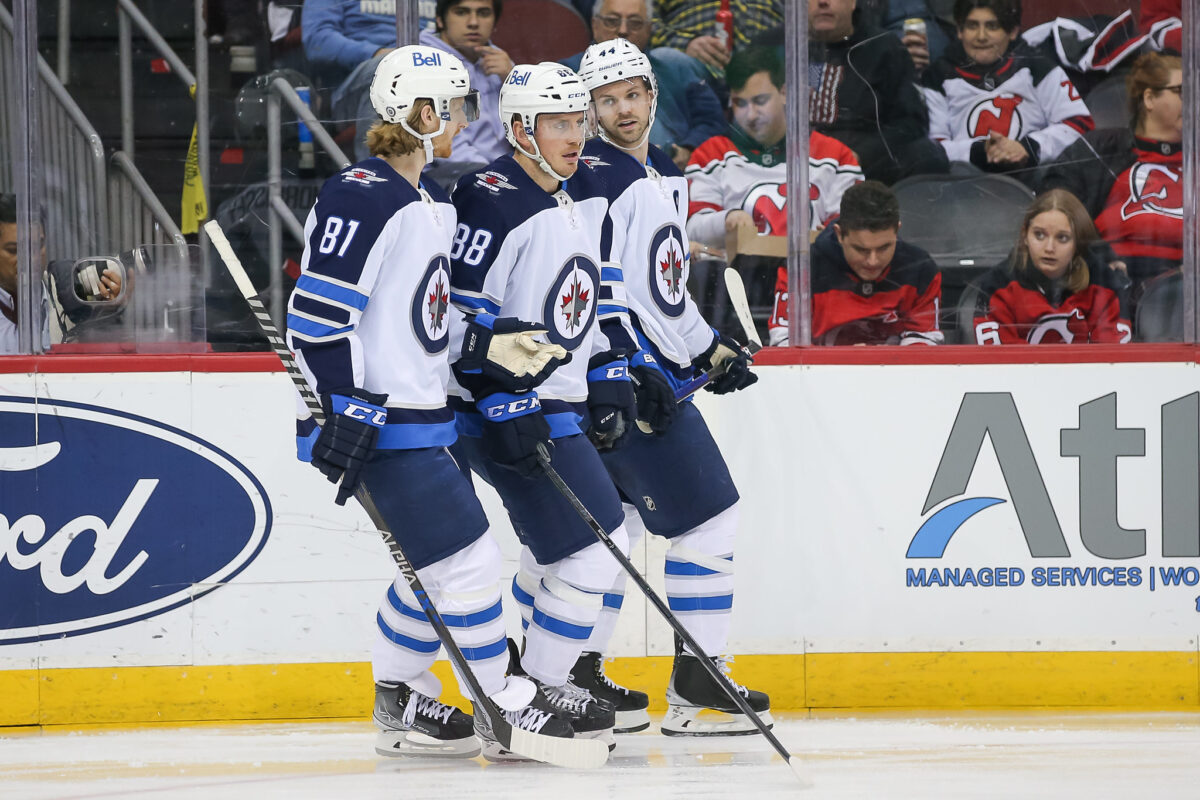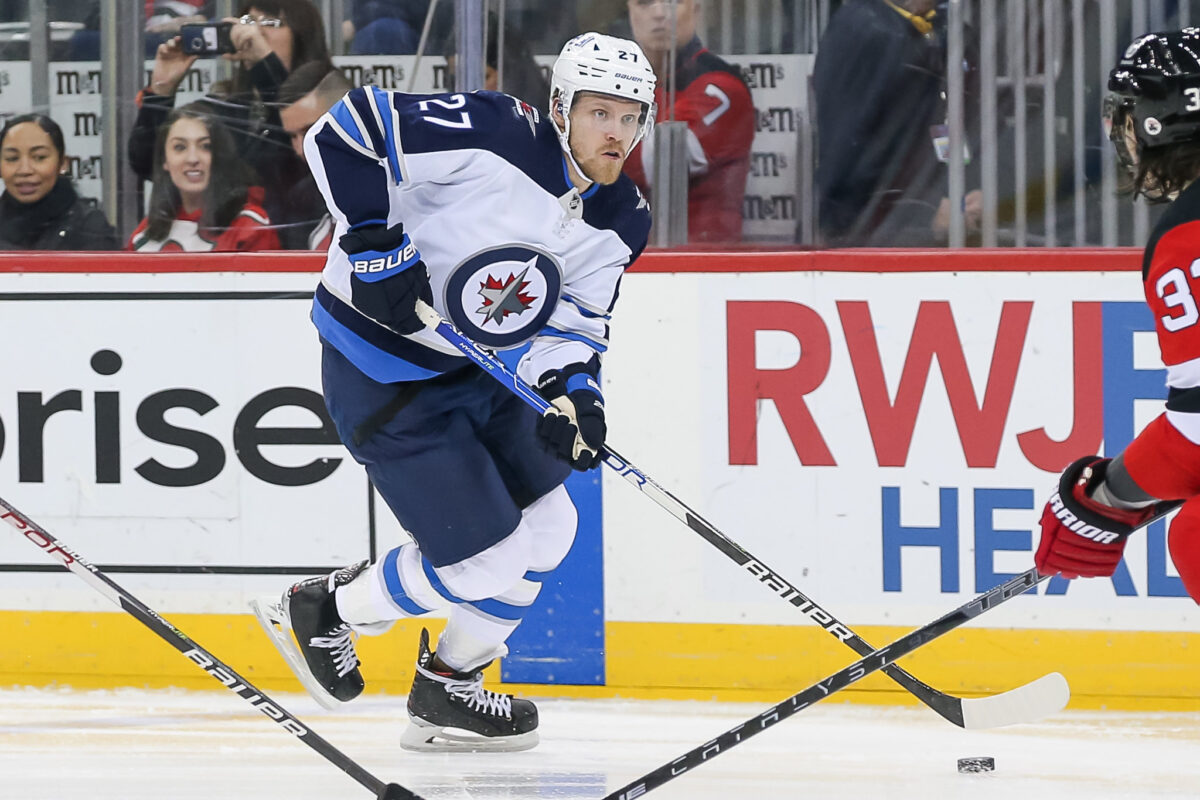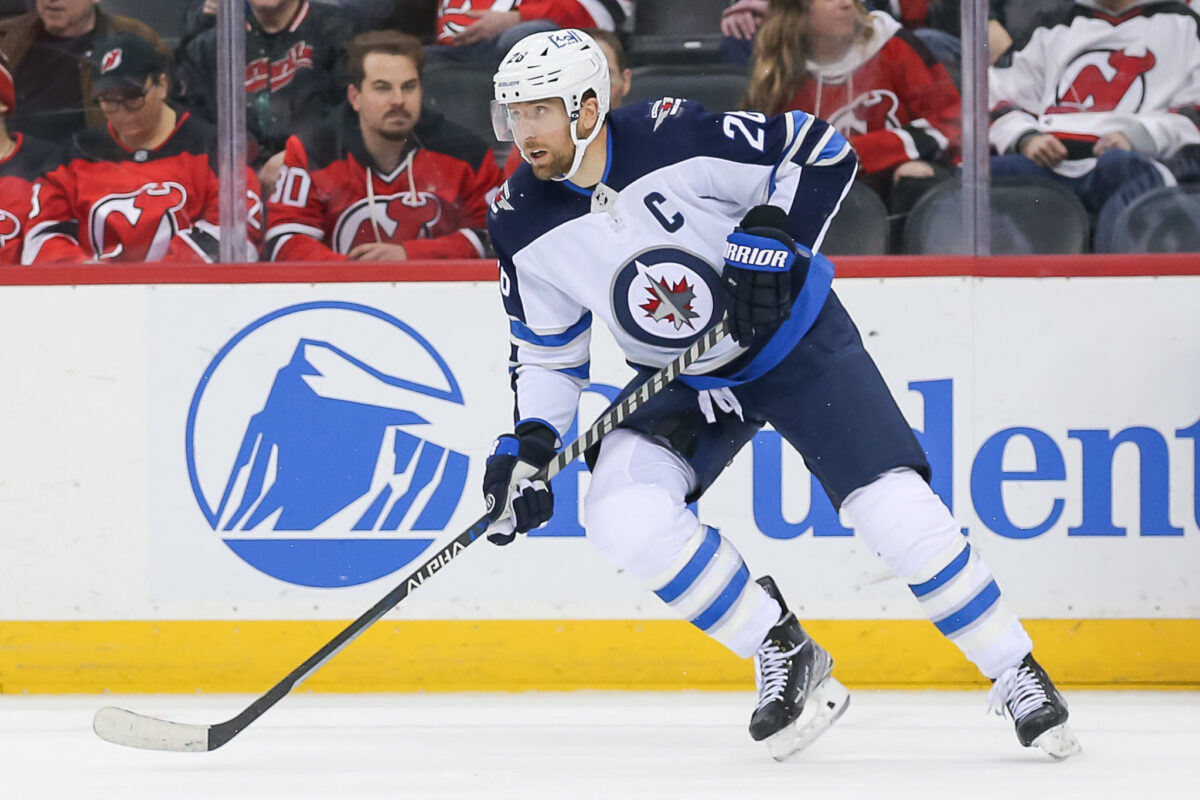The Winnipeg Jets are finding extra time success as of late, which is a much-needed change of pace from recent history. But it may have come too late.
Jets Riding an Extra-Time Winning Streak
The Jets — prior to a pretty embarrassing 7-3 loss to the Toronto Maple Leafs — had won their past three games, and all three were won beyond the usual 60 minutes. In total, they’ve won their past four games that have gone into overtime or a shootout dating back to mid-March.
Most recently, the Jets beat the Buffalo Sabres in a shootout, as Blake Wheeler scored the game-winner with some in-tight — and arguably illegal, as some argue that he stopped and/or went backwards — dangles.
The Jets also sent fans home happy in each of the final two games of their mostly-successful four-game homestand. On Sunday, Mark Scheifele beat Jets’ Kryptonite Karel Vejmelka in the dying seconds of the extra frame to lift his team to a 2-1 victory over the NHL’s worst team in the Arizona Coyotes.
Two nights earlier, Nikolaj Ehlers played the hero and gave the Jets to a 4-3 win over the Blue Jackets, perhaps stopping Jets fans from rioting in the streets of downtown — a questionable slashing penalty to Josh Morrissey wiped out an empty net goal that would have iced the game. A 4-2 lead turned into a 3-3 tie as just seconds into the power play, with 14 seconds left, the Blue Jackets scored the equalizer.
Overtime Has Been More Futile Than Fun for Jets in 2021-22
The Jets also beat the St. Louis Blues in overtime 4-3 on March 13, with Pierre-Luc Dubois scoring the game winner on a one-timer from Ehlers.
Prior to the win against the Blues, the Jets were an abysmal 3-10 in extra-time contests. Those 10 losses include six in the three-on-three and four in the shootout. The shootout victory over the Sabres was just the Jets’ second of the season.

Overtime losses to teams outside of one’s division don’t hurt as much as OT losses in so-called “four-point” games. The Jets have fallen in overtime five times to Central Division opponents, including three to the Dallas Stars alone — the team they’re chasing in the Western Conference Wild Card race.
Overdue Return To Three-Forward Strategy Brings Success
In the shortened 2020-21 season, the Jets went 6-3 in overtime and were excellent in three-on-three. They won six times in three-on-three and lost only once, while going 0-2 in shootouts. (Their lack of shootout success over the past number of seasons is a topic for another time.)
That three-on-three success was due in large part to running three forwards. Former head coach Paul Maurice — for all his flaws that held the Jets back during his too-long tenure — realized that with the amount of space available with just six players on the ice, three of his best offensive weapons should be out most of the time instead of just two. Since three-on-threes often become track meets, that led to some spectacular and speedy goals as the Jets snagged “bonus points” thanks to sheer skill.
“When you have the puck, it’s a lot easier. I haven’t experienced NOT having the puck in overtime when you’re playing with three forwards,” Ehlers said last February, after Paul Stastny shovelled in a puck on the goal line in overtime to give the Jets a 2-1 victory over the Montreal Canadiens on Feb. 28. Ehlers took the initial shot, and Kyle Connor drew the secondary assist.
A week later, on March 4, the Jets beat the Canadiens again in overtime, this time by a 4-3 score. Once again, Ehlers and Connor set up a goal, which was a bar-and-in snipe by Dubois.
This time, Stastny was asked to weigh in. “We either start with the puck, so we have the puck a lot… if there’s nothing, you possess it, you possess it, you wait until they maybe change or wait for a chance one way or the other,” he said. “When you don’t have the puck, you stay aggressive and you defend as much as you can.”
Stastny also explained at the time that because the ice is beat up and snowy in overtime, odd-man rushes aren’t as clear cut, which makes it easier for forwards to defend.
Maurice himself even said last November that “there’s not a huge advantage too having a defenceman to defend on those plays, there’s so much open ice, it’s more about skating forward.” Despite that, he — and his successor, interim head coach Dave Lowry — deviated too often from this formula with poor results.
Lowry’s recent recommitment to it has been met with instant success. Against the Blues, Ehlers, and Connor were on with Dubois when he scored. Against the Blue Jackets, the same trio were on, with Ehlers scoring.

Against the Coyotes, defenseman Josh Morrissey was on the ice when Scheifele scored, but the Jets played much of the time with three forwards. Against the Sabres, the Jets began with Dubois, Zach Sanford, and Wheeler, but a slashing minor to Dubois less than a minute in put the Jets on the penalty kill.
Overtime Losses a Huge Hit to Playoff Hopes
While it turns out the solution — just going back to what was already proven to work — was starting the Jets in the face the whole time, the realization may have come too late.
When you look at how often the Jets have lost in overtime this season, it’s not hard to see those losses as massive missed opportunities. 10 losses means 10 points left on the board, points that could have been realized if things had just gone a little bit differently.
The Jets (with 76 points) are four points back of the Vegas Golden Knights (80 points) for the second Western Conference Wild Card spot, and three points behind the Stars (77 points), who sit between the Golden Knights and Jets. The Stars, though, have a marked advantage — three games in hand on the Jets and four games in hand on the Golden Knights.

If the Jets would have won just half of the overtime games they’ve lost — regardless of if any of those wins were against the Stars — they’d have 81 points. Instead of being the hunter with just a 4.1 per cent chance of making the playoffs according to MoneyPuck.com as of Saturday morning, they’d possess the second Wild Card spot and be the hunted.
Related: Jets’ Playoff Hopes Take a Hit with Connor & Schmidt in COVID Protocol
Indeed, the Jets’ recent overtime prowess kept them in the playoff conversation to some extent through most of March. But most likely, their poor overtime results earlier in the season will be one of the biggest reasons they miss the postseason dance in a season that began with a ton of optimism.